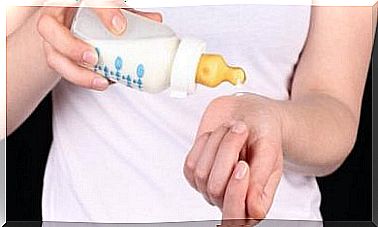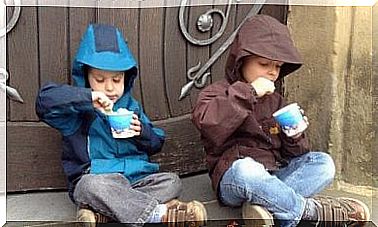Childhood Mythomania: Detection And Treatment – Being Parents

You have noticed that your child lies on impulse and you think it could be childhood mythomania. Do not worry, here you will find out the possible causes and how to correct this disorder. If you do this from an early age, it is possible to avoid consequences in the future.
What is childhood mythomania?
Mythomania, also known as “ pseudologia fantastica ” or “pathological lying” is a behavioral disorder in which the individual lies compulsively. A mythomaniac person consciously chooses lies to express their reality. In most cases, she actually believes the lies she is telling.
It is not a disease but a psychological disorder. In the case of children, it is not that easy to diagnose it. Indeed, they often invent stories or they have a lot of imagination. This is why the symptoms might not be detected immediately.
What are the characteristics of children with childhood mythomania?
Typically, children with this type of disorder idealize their reality. They lie all over the place, they make up stories and get angry when you don’t believe them. Their lie differs from person to person, their story varies depending on the listener.
These children lie for no reason, not just to save themselves from certain situations. For example, if a child breaks a vase, he might say that he did not break it. On the other hand, a mythomaniac child will lie without even having broken the vase.
Know that most children lie from time to time, this is normal. If your child nevertheless chooses a lie for each situation, he may have this disorder.
What is the treatement ?
Typically, children who start compulsively lying are going through a state of emotional fear or anxiety. They start to lie as a reaction to a situation and then it becomes a habit.

The important thing is to discover the cause for which they are lying in order to be able to help them overcome it. If you discover that your child is exhibiting this type of behavior, it is better to seek professional help. In addition, here are some helpful tips:
- Take note of the times he lies. Write down the time of day, the apparent cause, and the child’s emotional state. The smallest detail will help you decipher the reason for this behavior. This information will also guide the professional to determine a pattern of behavior.
- React calmly. Finding your child lying can be exasperating, but you shouldn’t get angry. Instead, show him your displeasure about lying.
- Don’t punish him for regretting and telling the truth. Show him your joy about his decision to stop lying. Reward the truth and assure him that he will not be punished if it happens again.
- Help him understand that lying will not save him from any situation. All his actions have consequences that he will sooner or later have to face. Encourage him to take responsibility for his actions, without receiving punishment.
Short and long term consequences
Short term
A child’s constant lies will create tension within the family and lead to a lack of trust in the child. We must avoid doubting everything he says. Indeed, even if he speaks the truth, he will feel judged. He won’t see the difference between being sincere and lying.

The social relationships of a child who lies compulsively will be affected as his peers find out that he is lying. He will start to feel left out. This will weaken his self-esteem and he will lie more to cover up this situation.
Long term
If the childhood mythomania is not corrected, the child will turn into an adult who lies for no reason. He will use lying as a way of life. He will lie to gain the sympathy of others and he will turn the facts into an embellished version of the story.
Mythomaniacs come to believe every one of their lies, and they have a hard time adjusting to the real world. This is why most of them fail to conform to their work, their friendships or their family.
You can prevent child mythomania from having more serious consequences if you try to address the cause (s) that may be causing the disorder in your child. Pay attention to his behavior and do not hesitate to get involved and help him if necessary.









